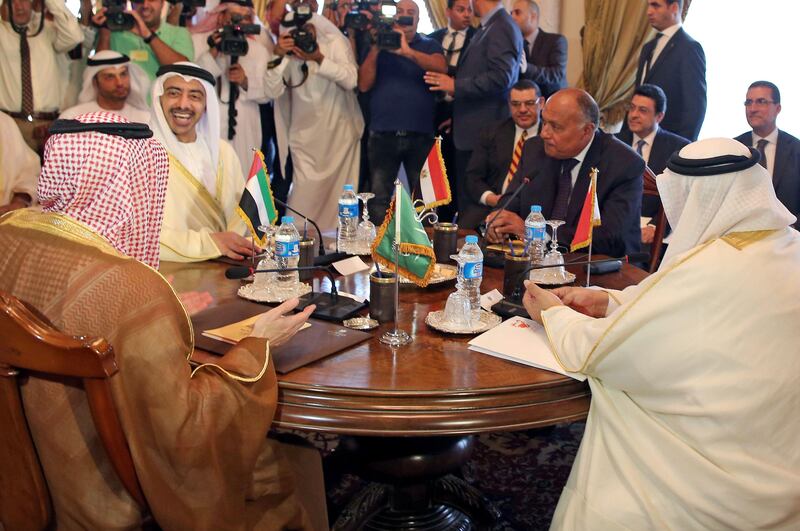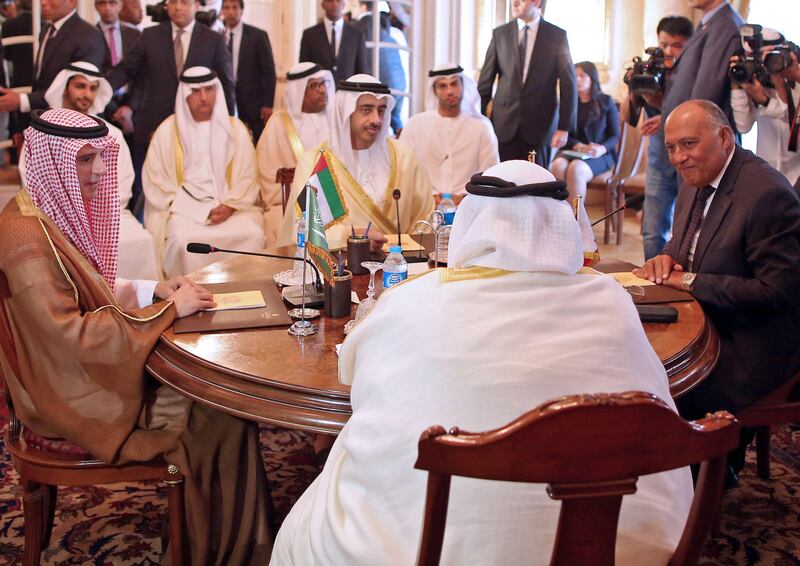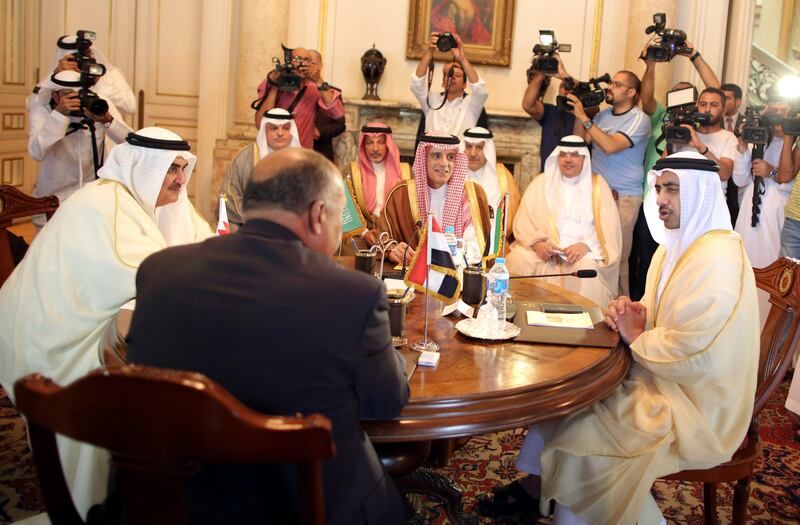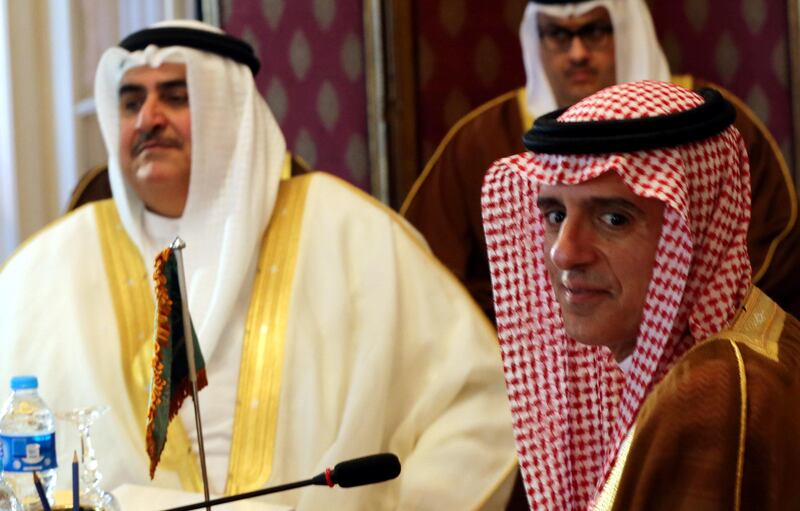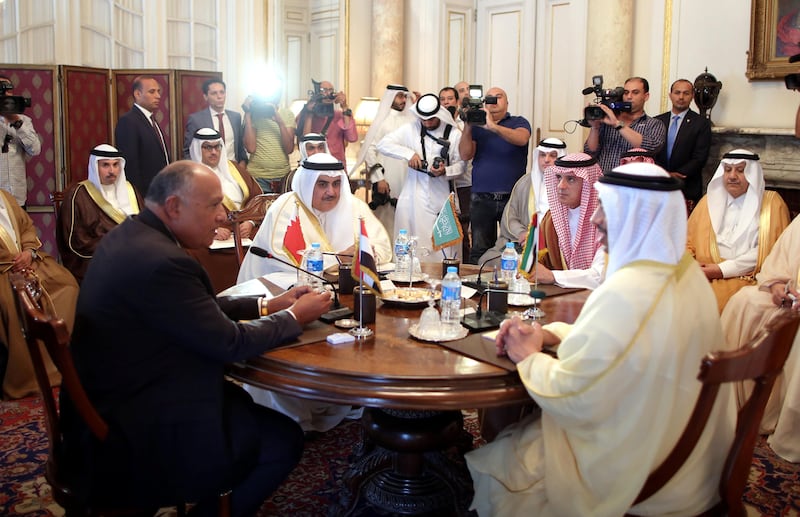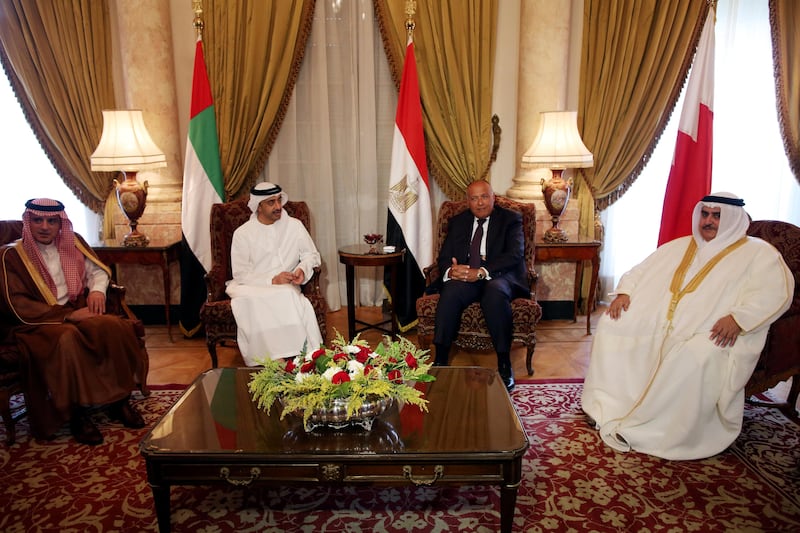Arab countries boycotting Qatar are considering measures to further isolate the country after receiving a “negative response” to their 13 demands.
The next steps will be based on a six-point joint statement issued by the foreign ministers of Saudi Arabia, the UAE, Bahrain and Egypt after a meeting in Cairo on Wednesday.
The ministers accused Qatar of refusing to abide by international laws and continuing to support terrorism – a stance that prompted the boycott now in its second month.
The four Arab countries said Doha had not made enough concessions to the demands aimed at bringing an end to the dispute.
Sheikh Abdullah bin Zayed, the UAE's foreign minister, said any further action against Qatar will be aimed at changing the country’s direction towards promoting peace.
“Qatar should change its policy from destruction to construction,” he said. “We are countries with our own sovereignty and we have the right and capability to use international laws for our benefit to solve this crisis and to counter terrorism and extremism.”
He said the region should “exert all efforts” in countering terrorism, marking this as an “opportunity to unite against and put an end to this scourge.”
The four Arab countries accuse Qatar of not following up on the commitments to the Riyadh summit agreement signed in 2014 to resolve a previous fallout.
A month after the quartet of countries cut trade, travel and diplomatic links, Moody's, the credit ratings agency, on Wednesday downgraded Qatar's economic outlook from stable to negative because of the crisis.
The Saudi foreign minister, Adel Al Jubeir, said they will continue “these very unfortunate measures” against Qatar.
“This was taken due to Qatar’s support of extremism and its interference in the internal affairs of countries in the region,” he said. “These are issues that have to stop. This is a demand that comes from the whole international community and not only from the countries present here today.”
Saudi FM @AdelAljubeir confirms that political and economic boycott will remain until #Qatar changes its policies.
— The National (@TheNationalNews) July 5, 2017
After the meeting, Dr Anwar Gargash, Minister of State for Foreign Affairs, said that next, Qatar would face: "greater isolation, incremental measures and reputational damage stemming from Doha's continued support for extremism and terrorism."
Earlier, the Qatari foreign minister accused the rival countries of an attempt to “create anti-Qatar sentiment in the West" and divert from finding a true solution to regional issues.
Sheikh Mohammed bin Abdulrahman Al Thani, said the list of 13 demands from the countries boycotting Qatar is counterproductive to the fight against terrorism.
“I know that this message will not be well received in some of our neighbouring capitals, but there are serious problems in the Middle East region, and silencing Qatar will not solve them," Sheikh Mohammed said at Chatham House in London. "The answer to our disagreement is not blockade and ultimatums, it is dialogue and reason.”
He said the GCC and the Middle east all share the same interest of combating terrorism and that the terrorist organisations are trying to divide the region.
The crisis has sparked great concern among the region’s international partners.
Ahead of the Cairo meeting, Donald Trump called Egyptian President Abdel Fattah El Sisi over the Gulf crisis. The American president called on all parties to negotiate to resolve the dispute and to end the financing of terrorism.
The 13 demands were issued on June 22 and if Doha agreed to them, the four countries would restore diplomatic relations with Qatar.
Trade and travel ties between the two sides were severed on June 5 with governments of the Arab quartet accusing Qatar of supporting extremist groups and of being too close to Iran.
The original 10-day deadline for Qatar to comply with the demands expired on Sunday but was extended to Wednesday at the request of Kuwait, which is acting as mediator.
Read more
Editorial: Qatar continues to be tone deaf, when will it start listening?
Arab nations receive Qatar's response to demands
